“When a helicopter and two crew are lost to the most fundamental accident cause that has bedevilled offshore crew for years, it is time to reflect if indeed we have made progress in real terms”

The Offshore Oil and Gas (O&G) industry has traditionally been a high-risk industry. The July 1988 explosion and fire at Piper Alpha platform in the North Sea, UK, is recorded as the worst offshore accident in history. 167 people were killed and it took three weeks to control the fire. Recent high profile accidents like the Deep water Horizon explosion (2010, 11 fatalities) and Bombay High North fire (2005, 22 fatalities) are still fresh in the minds of industry workers.
In this industry, SOPs are written in the blood and last breath of those who paid with their lives. After years of improvement through lessons learnt from mishaps, the industry today has reached a fairly high level of safety. Sharing of safety information forms a crucial part of the safety management program.
So when a helicopter and two crew are lost to the most fundamental accident causes that has bedeviled offshore crew for years, it is time to reflect if indeed we have made progress in real terms.
The Indian DGCA recently released the final report into the 04 Nov 2015 fatal accident of AS365N3 Dauphin VT-PWF off Mumbai. The helicopter was being operated on a training flight by Pawan Hans Helicopters Limited (PHHL), an Indian helicopter company, after embarking an offshore platform for night ambulance duties. The PIC who was the Pilot Monitoring (PM) was a 19500h veteran from the offshore industry. The trainee Pilot Flying (PF) with over one-third of the PIC’s experience was no stranger to offshore either. Yet, the two took off from the process platform on a dark night, made a direct approach to a rig ten miles away, and crashed into the sea after initiating a go-around. The accident investigation board attributed ‘spatial disorientation’ (SD) as the most likely cause.
The Night Sea Challenges
This story is from the Special Issue - October 2017 edition of Global Aviator - South Africa.
Start your 7-day Magzter GOLD free trial to access thousands of curated premium stories, and 9,000+ magazines and newspapers.
Already a subscriber ? Sign In
This story is from the Special Issue - October 2017 edition of Global Aviator - South Africa.
Start your 7-day Magzter GOLD free trial to access thousands of curated premium stories, and 9,000+ magazines and newspapers.
Already a subscriber? Sign In

Edelweiss, The Sound of Music, Grossglockner And Snow, Lots And Lots Of Snow
Austria is a wonderland of mountains, green pastures, lakes and . . . mountains
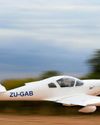
Zimbabwe Air Rally 2021 Part two
The following day we were up early to watch the departure air show once again, it is a large amount of razzle-dazzle to be honest.
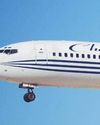
Boeing 727 One Crash Per 2 30 6300 Flying Hours
The Boeing 727 is a narrow-body airliner. The first 727-100 rolled out 27 November, 1962, first flew on 9 February, 1963, and entered service with Eastern on 1 February, 1964.
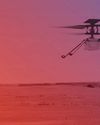
Taking Flight On Another World
The Mars Helicopter, Ingenuity, is a technology demonstration model to test powered, controlled flight on another world for the first time. It hitched a ride to Mars on the Perseverance rover. Once the rover reached a suitable "airfield" location, it released Ingenuity to the surface so it could perform a series of test flights over a 30-Martian-day experimental window.
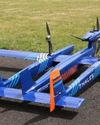
Thales Completes Successful First Flight Of New UAS With Range Capabilities Of Over 100 Km
• With a hybrid propulsion system for optimum safety, endurance and discretion, Thales's UAS 100 long-range unmanned air system for civil, government and military users will be able to operate at ranges of more than 100 km. • UAS 100 combines world-class flight safety performance with the compact design required for unmanned air systems, and complies with future European regulations for drone flights over populated areas. • The system will meet the requirements of a broad range of missions, including infrastructure inspection, coastal surveillance, border surveillance, event security, search-and-rescue and military operations.
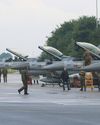
Dutch Squadron Finalises F-16 Operations
The Royal Netherlands Air Force 322 squadron based at Leeuwarden air force base terminated its operations on the F-16 “Fighting Falcon” early July (2021). With the gradual ongoing new deliveries of its successor, the Lockheed Boeing F-35A “Lightning II”, it was time for the squadron to focus only on the embedding of the new jet in the unit.
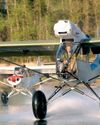
Double Ended Project: Where Is It Now
Traditionally, bush and STOL aircraft have been little more than modified certified trainers, with engine and prop upgrades, or the addition of fatter tyres. However there have been attempts to improve the safety aspect of this type of flying.
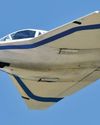
Dyke Delta Lookalike Fighter Kit Plane
The Dyke JD-2 Delta is an American homebuilt aircraft designed in the United States in the 1960s and marketed for amateur construction. It is a monoplane with retractable tricycle undercarriage and seating for four.
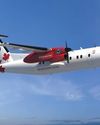
Pratt & Whitney Canada Advances Sustainable Hybrid-Electric Propulsion Technology, Contributing to Canada's Green Recovery Plan
Pratt & Whitney Canada (P&WC), plans to advance its hybridelectric propulsion technology and flight demonstrator programme as part of a $163M CAD investment, supported by the governments of Canada and Quebec.
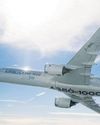
Airbus showcases the A350-1000 for the first time in Russia at the MAKS 2021 International Aerospace Show
Airbus demonstrated its latest technological innovations and projects implemented in Russia at the International Aerospace Show which took place in Zhukovsky from 20 to 25 July.